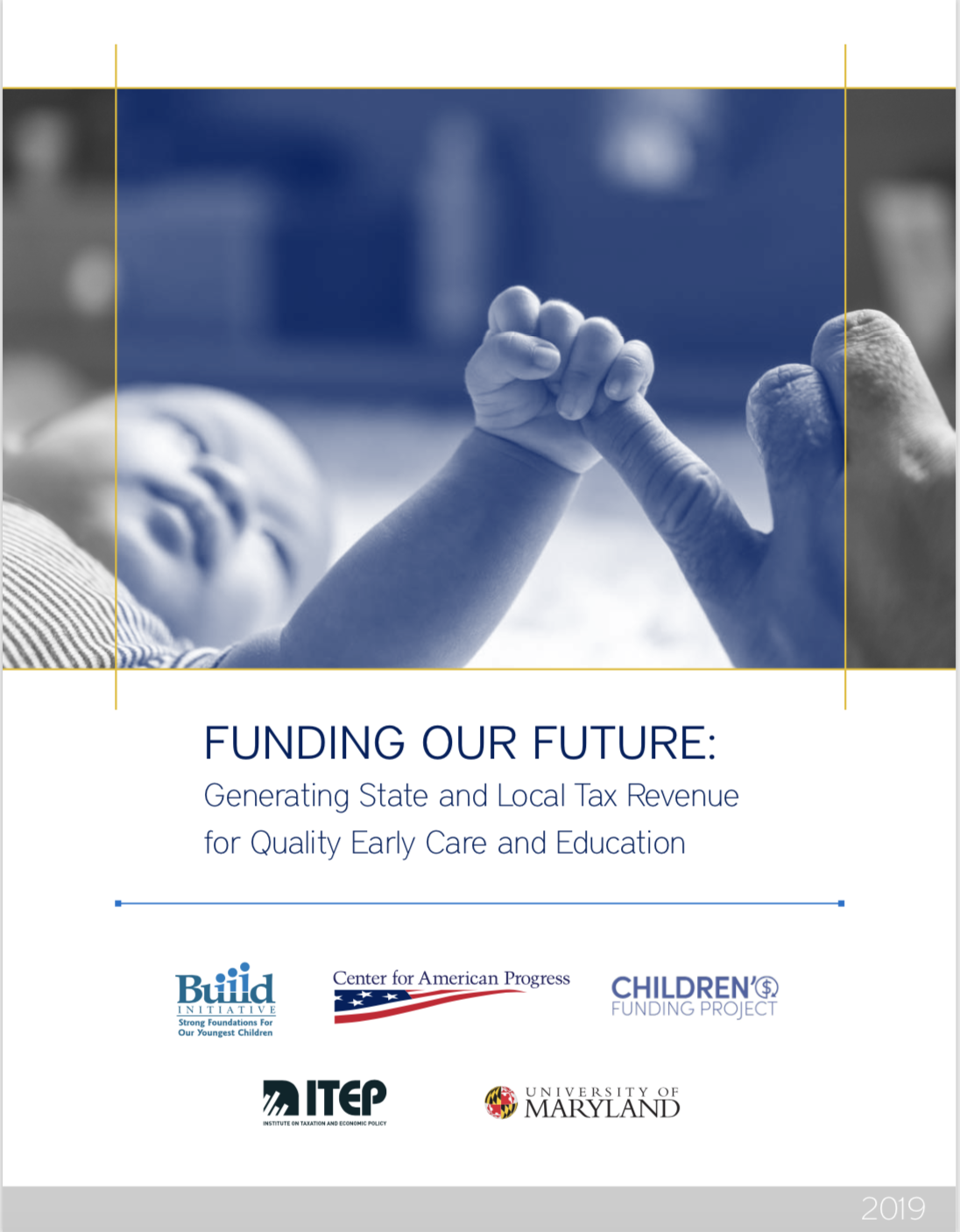Funding Our Future: Generating State And Local Tax Revenue For Quality Early Care And Education
This blog introduces a new report, Funding Our Future: Generating State and Local Tax Revenue for Quality Early Care and Education. The report catalogues successful examples of how state and local tax revenue have been used to support early care and education and introduces potential “next generation” tax policy ideas to bridge the funding gap.
Policymakers increasingly understand the importance of expanding the availability of quality early care and education for young children. But far too often, the lack of funding stands in the way. A new report, Funding Our Future: Generating State and Local Tax Revenue for Quality Early Care and Education, catalogues successful examples of how state and local tax revenue have been used to support early care and education. The report also introduces potential “next generation” tax policy ideas to bridge the funding gap.
Expert Guidance on Funding Strategies
In 2019, tax experts and seasoned early childhood leaders came together to help identify a range of potential tax policy areas to introduce to state and local leaders with a focus on expanding high-quality early care and education, especially for infants and toddlers. The Child Care Revenue Work Group identified seven tax areas that state and local early childhood leaders can consider. For example, some states are using sales taxes, taxes on large corporations, and set-asides of property tax revenue to help bridge the funding gap.
Guiding Questions for Identifying Funding Streams
Although tax policy varies across the country, the Child Care Revenue Work Group identified nine Guiding Questions to support conversations among leaders when evaluating potential sources of funding for child care. The questions are designed to test the legal, administrative, and political feasibility of these tax policies within state and local contexts. These essential questions can reveal whether a revenue generation policy may be appropriate for a particular community and may contribute to improved access to high-quality early care and education.
Resources to Evaluate Potential Funding in Your Local Context
This report provides early care and education leaders with tools and insights to examine the facets of taxes and tax policy that can generate funding strategies for quality early care and education. Working in cooperation with others who bring different perspectives and expertise to the work will make it possible to determine whether the tax areas covered in the paper are relevant within particular state and local contexts. Early childhood leaders can take away practical lessons from examples of how other states and localities have used dedicated tax revenue to support the accomplishment of long-term early care and education goals.
Explore More
Nurture Connection: A National Impact Network for Early Relational Health
Archived Webinar April 30, 2024
In this webinar we learn more about Nurture Connection, a national impact network that partners with families and communities to promote Early Relational Health (ERH).
We Can’t Do It Alone: Partnering with Local Government to Advance Statewide PN-3 Efforts
Archived Webinar January 24, 2024
These resources are from the January 19 webinar, We Can't Do It Alone: Partnering with Local Government to Advance Statewide PN-3 Efforts.

Financing Highlights
Report November 1, 2023
PDG B-5 Planning and Renewal Grants are being used by states across a wide range of content areas in the early childhood care and education system, and in a variety of ways. The federal funding provides a systems framework and seeks to offer flexibility within that framework. States are using the federal funding to build capacity, create infrastructure, provide direct services, and pilot work that is new for them. This work is occurring within a broad framework provided by the federal government. This brief explores the choices that PDG B-5 grantees plan for the use of the financing provided, which has impact on the overall ECCE systems that they are building and implementing. Within PDG B-5, states had to demonstrate how they would allocate the financial resources available across required and discretionary activity categories. We can learn about their priorities from a look at the choices that they made.

